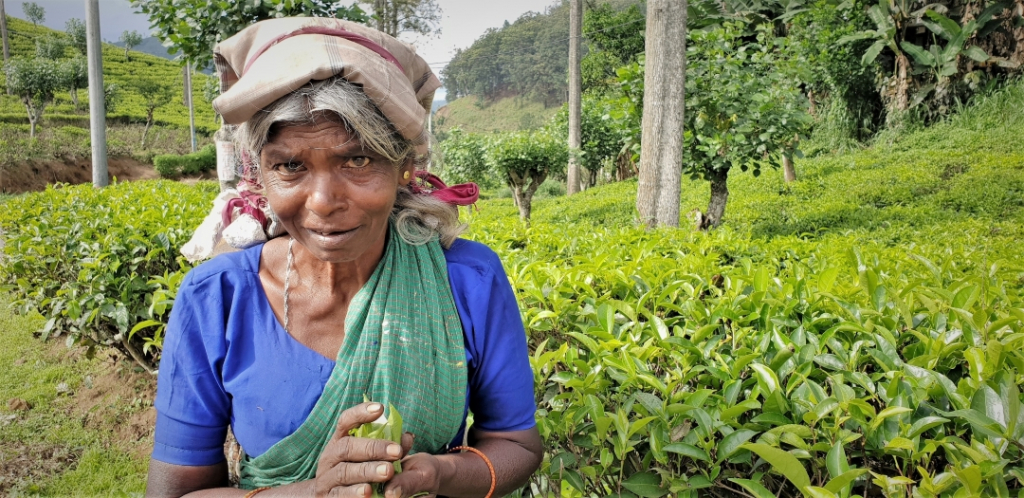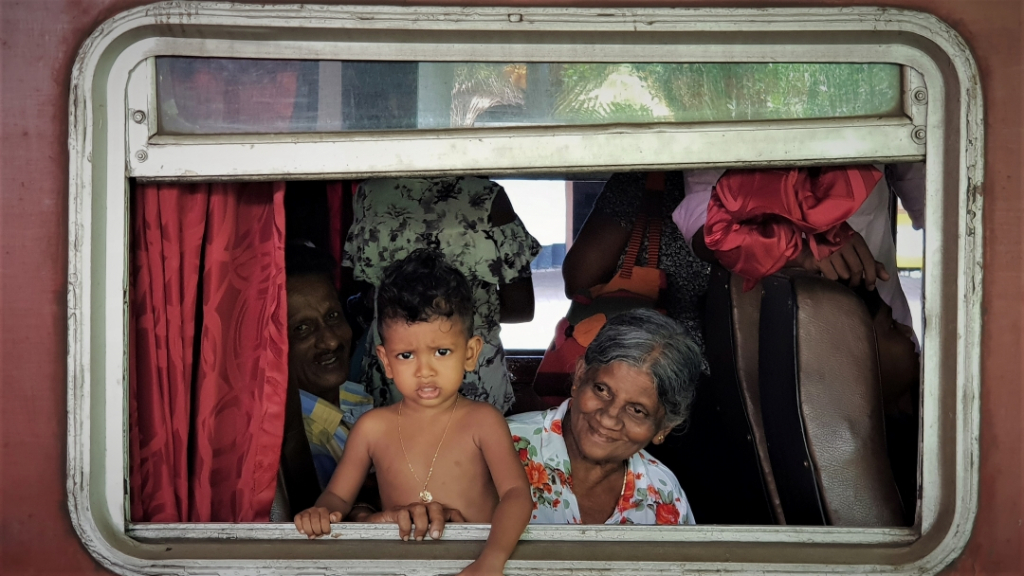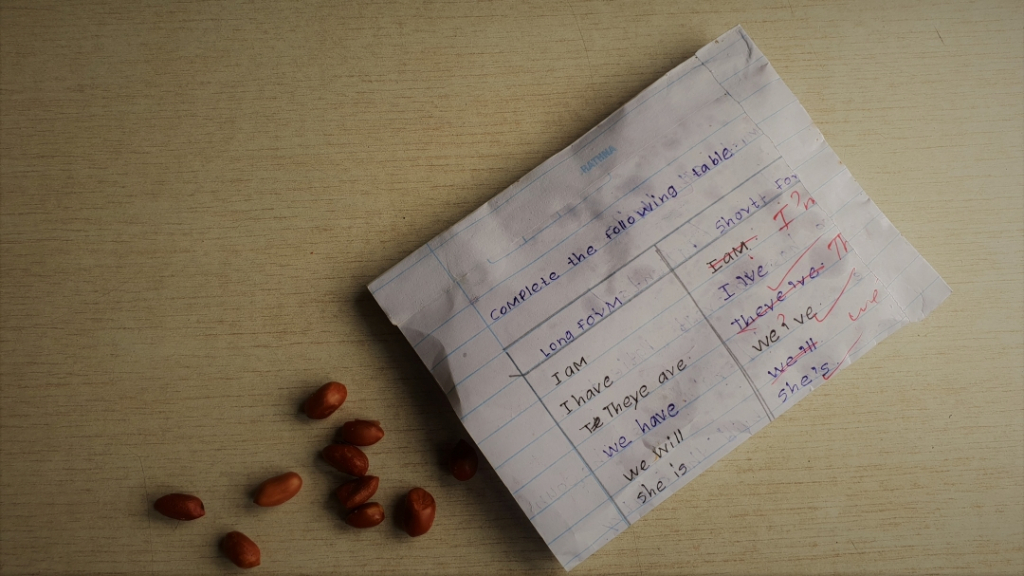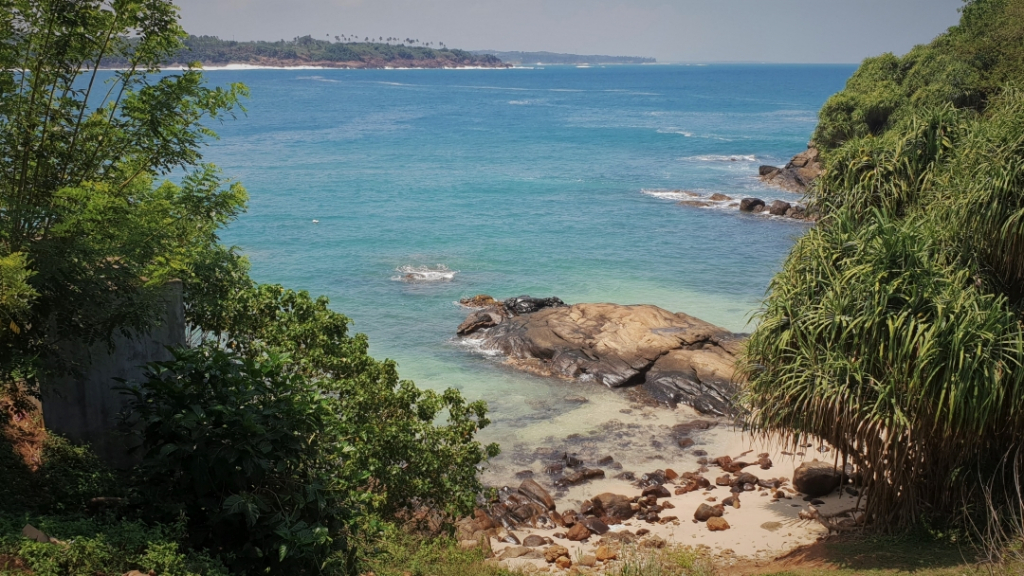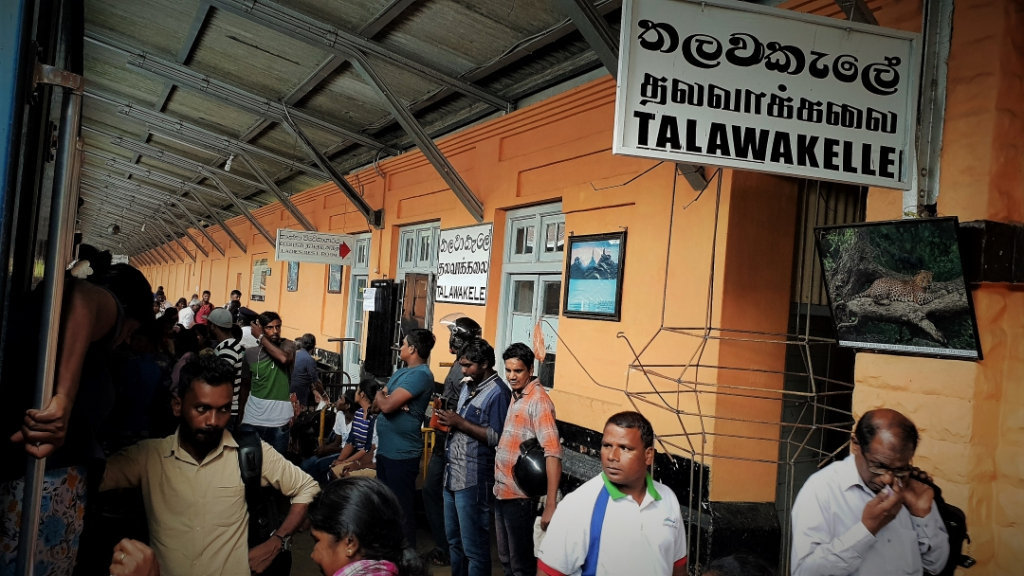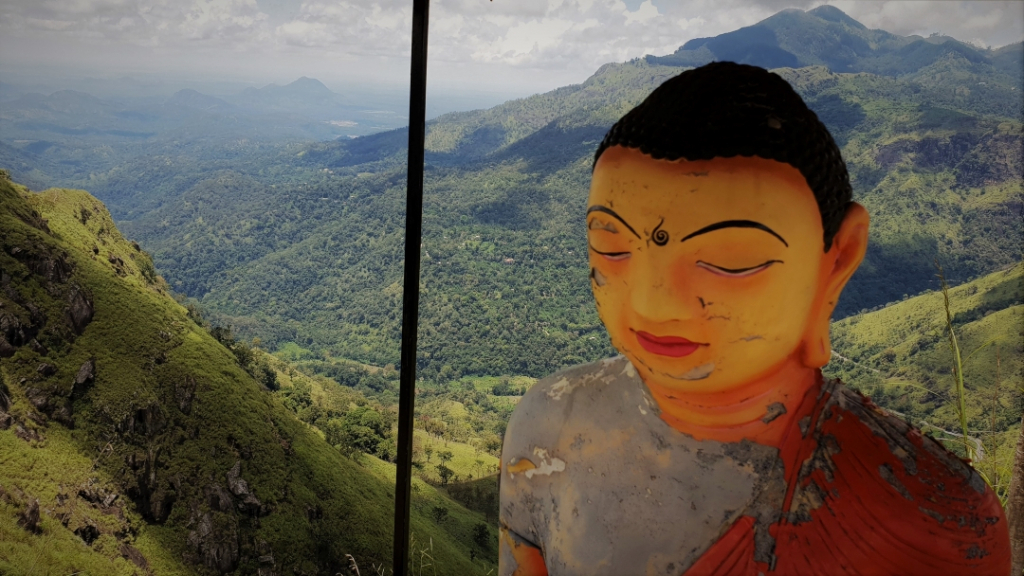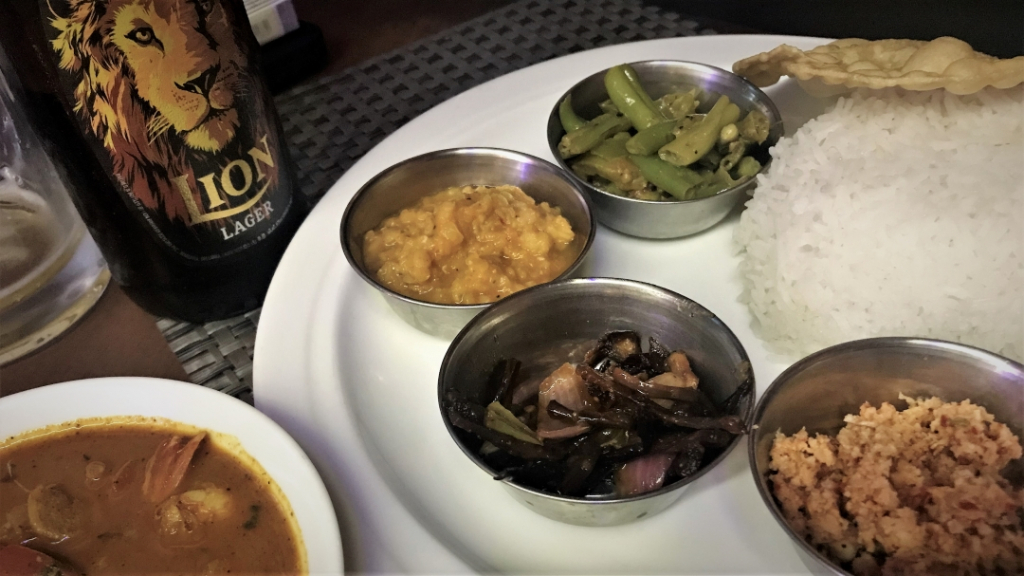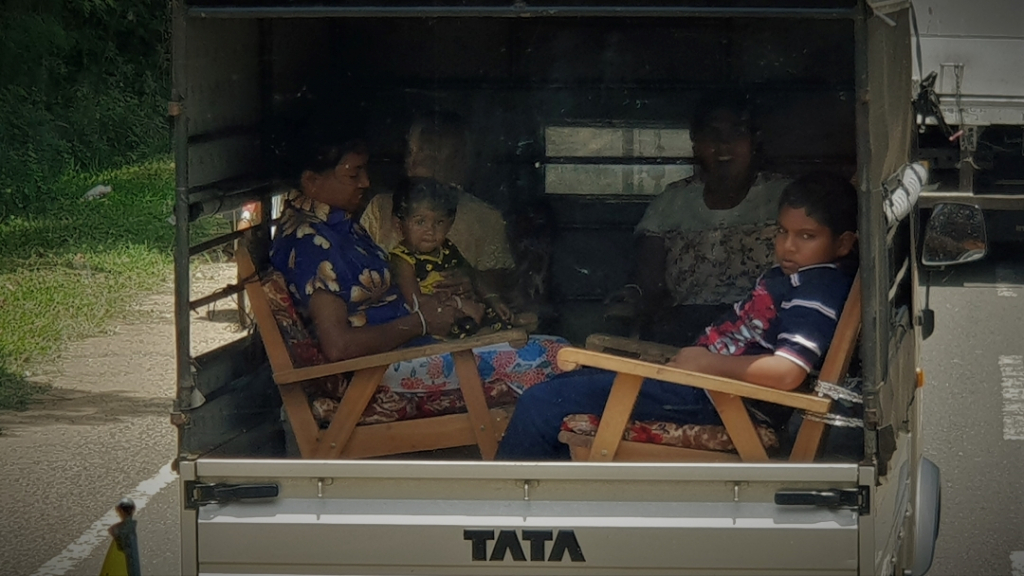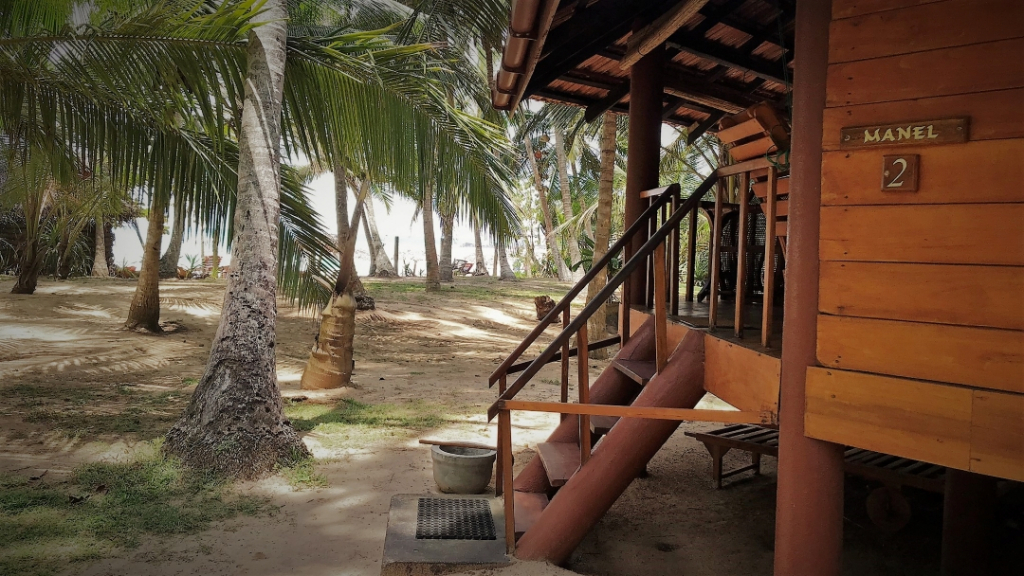Sri Lanka is an extraordinary destination. Breathtaking landscape. Lush nature. Pleasant beaches. Good waves for surfers. Delicious food. Welcoming people. Culture and tradition. What else?
Overviewing and sharing our trip to Sri Lanka, be ready to be surprised by the diversity it offers you. From the lush flora and colourful birds to elephants crossing your way without announcement – looking like, in reality, YOU are crossing their way :)!
What did I love?
-
- The train travel and the tea fields, a colonial heritage that transports you to old times;
- The street vendors in all train stations, tempted you with local offers through the train window! I still feel the taste of the best-roasted peanuts I’ve ever had, delivered on a page of an old paper school!
-
- Lion bear – light and fresh, sometimes replacing the wine very hard (and expensive) to find!
- Ella – a small village trapped in the middle of the mountains, serving the growing tourist population without losing its soul;
- Kataragama – where for the first time in my life, I felt like a tourist 😊 Elephants and families sharing the river for a bath!
- Yala natural park safari – feeling embraced by nature, strong and fragile in equal measure;
- Tangalle – bungalows with birds waking you up and monkeys welcome you on the pool;
- The magic Dutch heritage of Galle;
- Exploring the coast from Matara to Galle, with its beautiful beaches;
Our route in Sri Lanka
-
- Colombo » Kandy by train (day 1);
- Kandy & Dambulla (days 2-4);
- Kandy to Ella – best train travel ever! (day 5);
- Discover Ella (days 6-7);
- Ella » Kataragama (day 8);
- Safari @ Yala Park (day 9);
- Kataragama to Tangalle (day 10);
- Tangalle & surroundings (days 11-12);
- South coast from Matara to Galle (days 13-14);
- Return to Colombo (day 16).
A piece of history
- Sri Lanka’s documented history spans 3,000 years, starting from pre-historic evidence of the human presence and succeeding kingdoms that built remarkable construction projects such as Sigiriya.
- The early modern period of Sri Lanka begins with the arrival of the Portuguese explorers that built a fort at the port city of Colombo and gradually extended their control over the coastal areas. In 1638, the king signed a treaty with the Dutch to get rid of the Portuguese. Great Britain comes after, dominating the island (which they called Ceylon) from 1796.
- A nationalist political movement arose in the early 20th century to obtain political independence, which was granted in 1948; the country became a republic and adopted its current name in 1972. Sri Lanka’s recent history has been marred by a 26-year civil war that made over 100,000 victims. The 2004 Asian tsunami killed over 35,000 in Sri Lanka.
- In 2009 the Sri Lanka Armed Forces re-established control of the entire country and the nation has been globally recovering and becoming a proud nation again.
Buddhists represent ~70% of the population, result from a long influence through its long history and visible in all country by temples and monasteries.
Hinduism is the second most important religion in the country, living together with Islamism and Christianism, a result of multiple influences through the long story of the country.
Some practical advice
- Safety
I felt safe at all times. Tourists are welcome and respected.
- Money
I took Euros, which were accepted in a few places, but easy to exchange in hotels. I exchanged 200€ into the local Sri Lankan rupees to use as pocket money. Cash withdrawal machines are easy to find only in big cities. I used our Revolut card for most payments, as it was always accepted.
- Alcohol
Wine is expensive and hard to find: a few hotels and restaurants have the license to sell it. Beer is common; Lion is the best seller!
- Language
Sinhala and Tamil are the official languages; the use of English is universal.
- Transportation:
It’s easy to find transportation options.
-
- The railway and trains are old and available in few areas (it was built to transport tea/coffee/other plantation in colonial times);
- Renting a car with a driver – In Sri Lanka, a result of the log British dominance, driving is don on the left, a big challenge for the non-British!
- Tuk-tuk – everywhere an easy and cheap way to make small circuits
- Uber available in Colombo; other places I didn’t try
- Rent a motorbike – This the easier and best way to explore the island as it is easy and cheap. Most hotels have this “service”.
- Accommodation
A lot of options available; if you are flexible, you can find it as you travel. I preferred to have some spots booked in advance, to be sure to have the best deal (quality/price), and also not to lose time searching when I arrived.
-
Phone and internet
Buy a local SIM card on arrival since you can do it inside the airport while waiting for the luggage.
- Health care
Insect repellent highly recommended. Despite I didn’t try not bottled water, so I advise you to do the same.
- Habits
No special care needed in terms of clothing/habits, except for temples.
- Visiting sacred places
As in the majority of the sacred places around the world, you are invited to cover your shoulders and legs. Be ready anytime, as you can find no planned places and take a look
- Bird watching
If you love bird watching, visit a Protected Park and have your binoculars ready!

